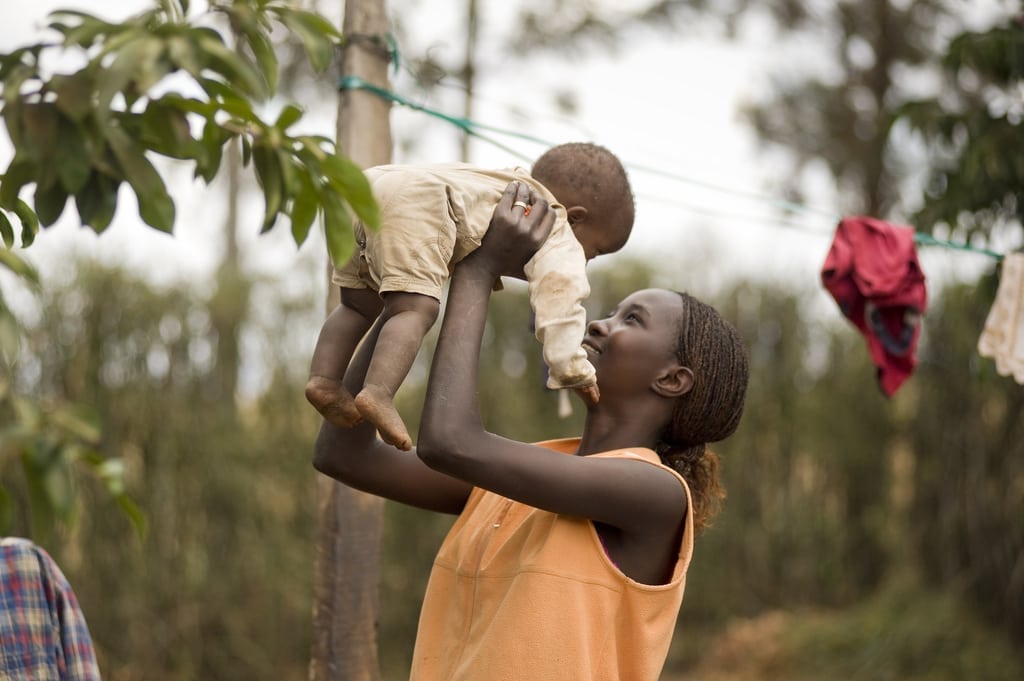Brenda used to sell curtains door to door in Nairobi, Kenya, but she dreamed of opening her own storefront. She had a college education, but no credit history and little chance of winning approval for a bank loan to start her business. What she did have was a mobile phone, which she used habitually.
It turns out that the thousands of different interactions that Brenda—or anyone in Nairobi—has with her mobile phone can paint a picture of how likely she is to repay a loan. What time of day does she make most of her calls? If she places fewer than 30 percent of her calls between the hours of 9pm and 12am, then the odds that she would repay a small loan increase by 18 percent. What apps does she have? If she has more than 23 social media applications, she is 20 percent less likely to repay a loan. But if she has fewer than 10, her repayment rate increases.
“Is it possible to determine someone’s creditworthiness even if they’ve never used any financial services? It turns out that it is, and using something most widely available on the continent – a mobile phone” – Abdigani Diriye, IBM Research Africa
Those figures, plus more than 10,000 other data points, are part of a formula that data science startup Tala’s created to rate a person’s creditworthiness. Shivani Siroya, who heads the social enterprise, tells Brenda’s story to put a human face on an exceedingly numerical line of work. Tala constructs financial identities for people who have no traditional credit history. Lately, Tala is joined by a lot of newcomers.
The World Bank Global Findex Database reports that two billion adults do not have a bank account, let alone a FICO score rating their creditworthiness. The problem is not restricted to emerging economies like Kenya. In the United States, 45 million people do not have a credit history, according to the US Consumer Financial Protection Bureau. With hundreds of millions of potential customers struggling to access financial services, loan providers have begun to pay attention.
“Fintech for alternative credit scoring is a big area for us the last few years. We have made a number of investments and have looked at hundreds of startups,” says Tahira Dosani, managing director at Accion Venture Lab, which is a United States-based impact investment arm of the global nonprofit Accion. The lab seeds startups focused on financial inclusion.
“At a high level, there is a host of data not being captured by traditional FICO scores, which are inherently backward looking. It doesn’t assess behavior metrics or future potential, for example,” Ms. Dosani says.
What’s in an algorithm?
The rising trend is to turn to big data for a solution. Data is, in turn, supplying some unexpected answers.
Engineers at IBM Research Africa built an algorithm based on 100 data points collected from mobile phones. The company won’t say much about the information analyzed, but IBM inclusive financial services researcher Abdigani Diriye says that some of the data points include the amount of airtime a person uses, how much mobile money passes through their mobile wallets, and how often they top off their prepaid phone accounts.
“The question we ask ourselves is, is it possible to determine someone’s creditworthiness even if they’ve never used any financial services?,” says Diriye. “It turns out that it is, and using something most widely available on the continent – a mobile phone.”
Tala has found that some behaviors that would not seem to reveal anything about a person’s financial position have relevance to credit risk assessment. These include the number of people a person communicates with regularly, the length of calls, and even how they list people in the address book. The company customizes its algorithms to each country where it operates, building localized models that look at unique signals—or bizarre signals, in some cases.
“At a high level, there is a host of data not being captured by traditional FICO scores, which are inherently backward looking. It doesn’t assess behavior metrics or future potential, for example” – Tahira Dosani, Accion Venture Labs.
“In the Philippines we found that zombie racing games were an indicator that someone was a little bit less trustworthy,” says Lauren Pruneski, Tala’s Global Communications Director.
Often data analysts can only guess at why such data points would matter. Dealers in big data vacuum up everything they can legally use, blocked only by the limits of technology and, in some cases, by laws like the US Fair Credit Reporting Act that protect sensitive information such as a person’s race. Then proprietary programs analyze all of it, teasing out the points that correspond to loan repayment.
That said, the folks at Tala have an idea about why at least one of their metrics matters. “Listing first and last name with capitalization suggests an attention to detail and they may be more likely to pay back a loan,” Ms. Pruneski says.
Forward-looking predictors
Besides phone usage patterns, Accion’s due diligence into alternative credit startups has uncovered other factors that can build a financial identity. Some of those include a history of utility payments, rental payments, prepaid phone payments, behaviors that indicate an understanding of debt and responsible borrowing, a person’s skills and so on.
Accion invested in Destacame in Chile and Mexico which examines utility repayment rates and other consumer data to provide leads to financial clients. Chilean banks typically see only a credit blacklist, so Destacame’s data offers a glimpse into positive financial behavior not captured by the Chilean credit authority.
“In the Philippines we found that zombie racing games were an indicator that someone was a little bit less trustworthy” – Lauren Pruneski, Tala
Another Accion investment, Revolution Credit, offers videos and short quizzes on financial concepts to people in the United States that have difficulty accessing traditional credit products. The customers’ behavior and performance yield information about their creditworthiness. Opting to watch a video might demonstrate a willingness to learn more, for example.
“One of the things they are measuring is conscientiousness, which is a behavior that’s highly correlated to repayment,” Ms. Dosani says.
How well do these systems work? Tala and IBM both have real-world experience to demonstrate their systems’ efficacy. Tala claims a repayment rate of more than 90 percent on small loans of (USD) $10 – $500. That’s an average calculated from 1 million customers in four countries. (IBM and its clients, which include a large African bank and a leading telecom, declined to comment further.)
Other startups, however, have a harder time proving the legitimacy of their data. “It’s hard for alternative credit-scoring startups to make their first sale, so finding a partner that they build with initially and getting a test dataset is the first step,” Ms. Dosani at Accion says. She adds that there are public datasets against which they can back-test their systems to approximate of how they might work in the real world. Others are piloting them through small amounts of direct lending.
“One of the things they are measuring is conscientiousness, which is a behavior that’s highly correlated to repayment,” – Tahira Dosani
Good data analysis and even a financial identity is only a first step in financial inclusion. The tools that seem to offer the most value either recommend or financial products tailored to underserved consumers’ needs. Customers who are declined for a credit card may be eligible for a low-limit credit card, for example. Investing time in new lending customers also shows correlation to higher repayment rates, Siroya explains. She offers Brenda’s story as an example. Brenda took out 44 loans with Tala, opened her store and repaid the money. While repaying a loan, Brenda suffered a family emergency and found it difficult to make payments. Instead of allowing her to default, Tala was flexible and worked out a new payment plan. The data combined with human interaction prevented failure, Ms. Siroya says.
“We have continued to stress the importance of personalization and specificity,” Ms. Siroya says. “Brenda is one of our hundreds of thousands of customers who have taught us how to look at our data, make sure it provides fair financial access for the billions who deserve it, and most importantly ensure that we stay biased towards inclusivity.”
Produced in collaboration with Impact Alpha

